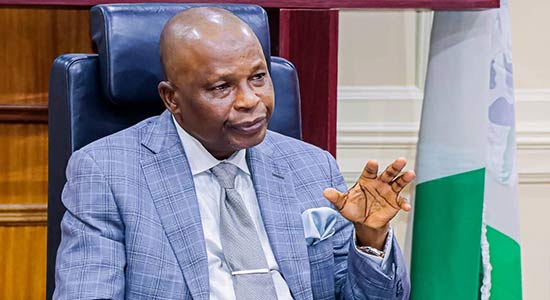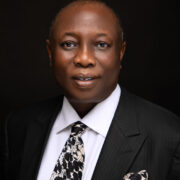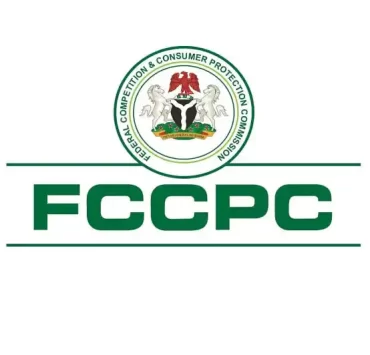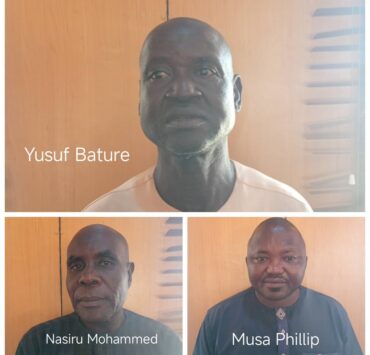Corruption in Judiciary Undermines Justice System Credibility, Fairness Of Trials – Fagbemi

Lawyard is a legal media and services platform that provides…
The Attorney General of the Federation (AGF) and Minister of Justice, Prince Lateef Fagbemi (SAN), has said that bribery, nepotism and bias in the judicial process undermine the fairness of trials and the credibility of the justice system.
Fagbemi stated this during the weekend in his keynote address at The Gavel International Annual Lecture 2024, with the theme: ‘The Judiciary as the Last Hope of the Common Man: Media and Legal Perspectives’, held in Lagos.
According to him, when judges accept bribes, make decisions based on personal interests, or favour certain parties due to political or social pressure, it significantly compromises the rule of law.
He said: “Despite the judiciary’s role as an impartial body, it is not immune to corruption. Bribery, nepotism, and bias in the judicial process undermine the fairness of trials and the credibility of the justice system. When judges accept bribes, make decisions based on personal interests, or favour certain parties due to political or social pressure, it significantly compromises the rule of law”.
He warned that corruption within the judiciary and the abuse of power can contribute to the breakdown of the rule of law and diminish public confidence in the judicial system.
“The presence of corruption within the judiciary damages public confidence in the system, particularly when the common man is forced to navigate a system that seems rigged or biased against them,” Fagbemi said.
The AGF further identified high legal fees, complex procedures, and lack of access to legal aid as factors that can make it difficult for the common man to access justice.
Fagbemi warned that if the judiciary fails to create an equitable future, society could face long-term consequences, including a rise in civil unrest and a diminished belief in the legal system as a vehicle for justice.
The AGF, however, noted that the Nigerian judiciary is one of the most respected in Africa, as evidenced in recent times, though questions remain about its role as the “last hope of the common man.”
He highlighted landmark cases where the judiciary in Nigeria acted as a guardian of justice, protecting individuals’ rights and ensuring that the rule of law prevails in the face of challenges and injustices.
Fagbemi stressed the need for collaboration between the judiciary, the executive, the media, and citizens to build a Nigeria where every individual, regardless of status or station, can find justice, hope, and dignity.
In his lecture, former General Secretary of the Nigerian Bar Association (NBA), Mr. Dele Adesina (SAN), described the judiciary as an institution he was committed to defending and advancing at all times.
Speaking on the theme: ‘The Judiciary as the Last Hope of the Common Man: Media and Legal Practitioners’ Perspectives,’ Adesina said the judiciary is not only the last hope of the common man but also the last hope of the uncommon, big and small, young and old, educated or illiterate, rich or poor, as well as the government and the governed.
In his words, Adesina, a Life Member of the Body of Benchers, added: “The judiciary is often regarded as the last hope of the common man because it provides a safeguard against the abuse and misuse of power. However, the question I hasten to ask is: Is the judiciary the last hope of the common man only? Jurisprudentially, I say no.”
On the relationship between the media and the judiciary, Adesina stated that the golden rule of practice is that the media must not make any comments that could prejudice a fair trial.
“The media should be wary of this. Trial by the media in criminal matters prejudices the minds of the populace and leads them to hold the court in contempt and dishonour when it ultimately reaches a conflicting or different verdict. More often than not, allegations of compromise and corruption are made against the judge. This is very unhealthy for the development of our legal system and judicial process,” he said.
In his opening remarks, the publisher of Gavel International, Mr. Mustapha Ogunsakin, noted that the Nigerian judiciary and the entire justice system have long been a subject of public concern and unfavourable commentary.
He reflected on his career as a journalist, recalling that several decades ago, the courts were in crisis with the judges’ pay being insufficient, and the morale of judicial officers and court staff disheartening.
Dignitaries at the event included Prince Julius Adelusi-Adeluyi, Gbenga Oyebode, co-founder of Aluko & Oyebode, and human rights lawyer, Mr. Femi Falana (SAN), among others.
Lawyard is a legal media and services platform that provides enlightenment and access to legal services to members of the public (individuals and businesses) while also availing lawyers of needed information on new trends and resources in various areas of practice.













